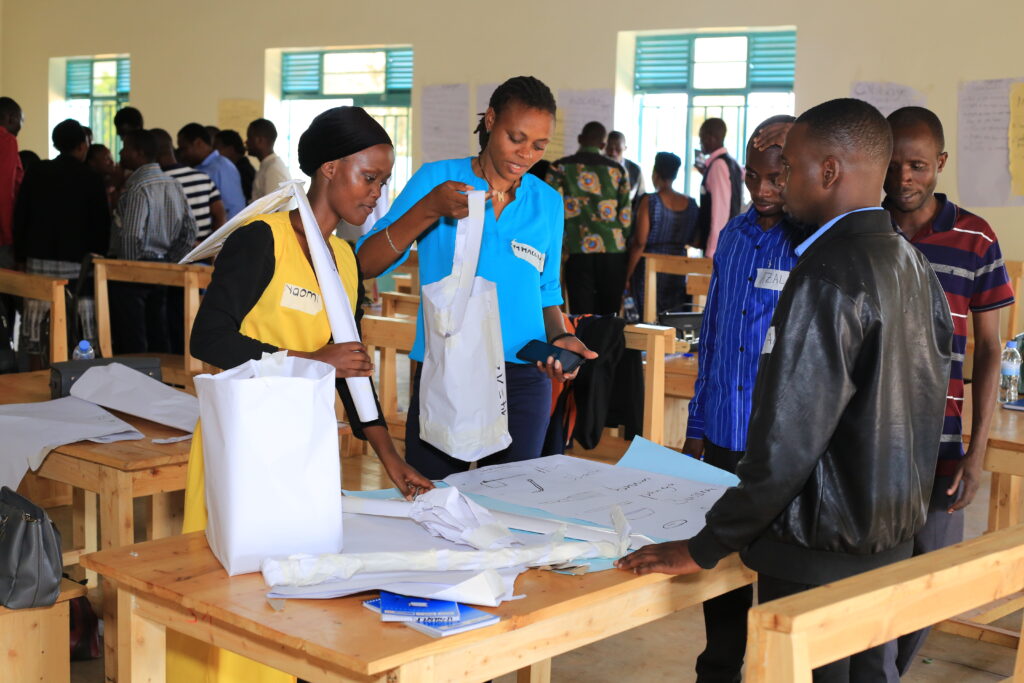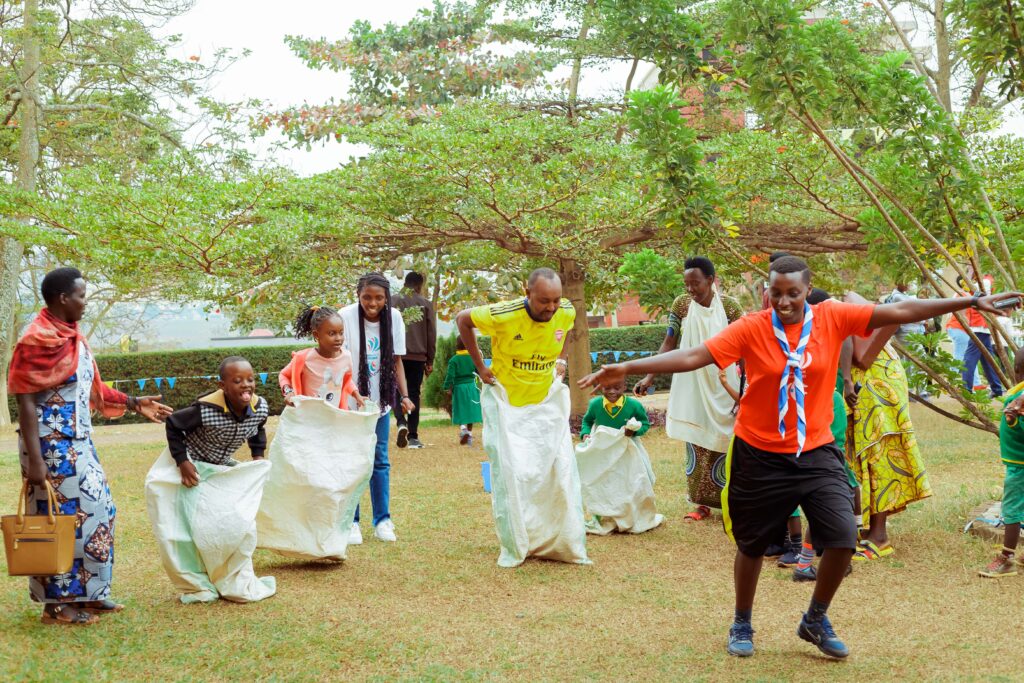Children are naturally motivated to play. You would be hard-pressed to find a child who must be forced to play.
This is why a play-based program building on this motivation and using it as a context for learning, makes a ton of sense.
In Rwanda, the government has prioritized enhancing the quality of teaching and learning, for improved learning outcomes, as is laid out in the current Education Sector Strategic Plan (2018/19–2024/25).
In collaboration with the LEGO Foundation, UNICEF Rwanda is playing its part, in support of the government, to make this a reality in schools across the country.
With thanks to the LEGO Foundation and in technical collaboration with the Rwanda Basic Education Board (REB), UNICEF is collaborating with Inspire, Educate and Empower Rwanda (IEE) to implement the Learning through Play (LtP) programme, aimed at using playful teaching and learning pedagogical approaches in Rwandan primary schools, for improved learning outcomes for the children.
LtP features learner-centred, interactive, and playful learning approaches which involve children in their own learning to acquire intended basic and generic competencies including literacy and numeracy which are foundational to all learning.
As part of capacity support to the national School-based Mentorship Programme (SBMP), Sector -based Mentor Trainers (SBMTs) and School-based Mentors (SBMs) are further being supported to facilitate ongoing school-based in-service teacher professional development activities for teachers, engaging in trainings to understand philosophical foundations and practices of integrating play-based teaching approaches in teaching, while implementing the Competence-based Curriculum (CBC).
Even though there is growing evidence extolling the importance of play for children’s learning, enabling them to develop cognitively, socially, emotionally, physically as well as acquisition of creativity and curiosity, which are key attributes for life-long learning, there is evidence that this concept is yet to take root in Rwandan schools and communities.
To address this, UNICEF acted: a LtP programme is being implemented country-wide to reach all primary teachers with understanding and practice for using play-based pedagogies in their teaching.
The LtP programme is building capacities of SBMTs and SBMs to understand underpinnings of LtP and its implementation strategies.
The progress is telling: to date 832 SBMTs and 2,068 SBMs have been trained, and in turn they have trained 48,783 primary school teachers from primary schools across the country, who are further being supported to effectively implement play-based learning for primary school children.“My learners have been inspired through the magic of purposeful games in my English language classes. Through trainings, I now understand how to integrate play activities in lessons, and I have seen my students’ active participation increasing, and their performance improving. We also have weekly CPD in which I am continuing to gain more tips on how to integrate play in my teaching,” says Liliane Uwera, teacher of English at Groupe Scolaire Mayange B in Bugesera district.

By making use of a multi-pronged approach, UNICEF has collaborated with partners such as Urunana Development Communications, who operate the ever-popular Urunana radio soap opera series, to embed play-based messages their story lines.
UNICEF also joined hands with Purpose, a local non-profit organization, in the Kina Rwanda (Play Rwanda) movement, in alignment with the LEGO Foundation’s global Build a World of Play (Hanga Isi y’ Imikino) campaign.
The caravan rolled through five districts in Rwanda: Bugesera in the East, Musanze in the North, Rubavu in the West, and Nyanza in Southern Rwanda, finally coming to a rest in Kigali. The Play Caravan engaged over 5,356 local leaders, parents and community members, as well as over 8,670 children in interactive educational games that are particularly traditional Rwandan games, whereby community members and parents took part in the play activities and appreciated applicability to children’s learning in school and home contexts. “Play is our brain’s favorite way of learning. We’re thrilled to partner with Kina Rwanda to provide children from all walks of life, from all over the country, the chance to play, laugh, and dance, but most importantly, learn by gaining problem-solving skills, and increasing their creativity and resilience – skills that will prove immeasurably important as they grow up”- said Julianna Lindsey, UNICEF Country Representative in Rwanda, in reflection on the Play Caravan activity.

Significant positive feedback has been received from varied stakeholders about the play campaign.
“In Bugesera district, we encourage parents to find that precious time to play with children because through play, they will easily bond with them, make them their first allies, while supporting their development” – said Richard Mutabazi, Mayor of Bugesera district. Similarly, after supporting Play Caravan activities, the Vice Mayor of Rubavu district took to her twitter account with a Kinyarwanda tweet translated as “Our children need us, let’s give them time however small it might be. It will help us to know them and guide them to be responsible citizens. Parents, we have no excuse”
UNICEF is committed to supporting the Government of Rwanda to seeing through its journey toward sustainable, inclusive socio-economic development by transforming its citizenry into a skilled, and capacitated human capital, and Learning through Play continues to prove to be a key cog in this journey.
